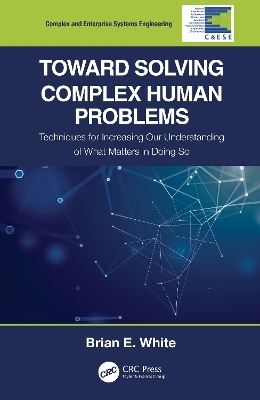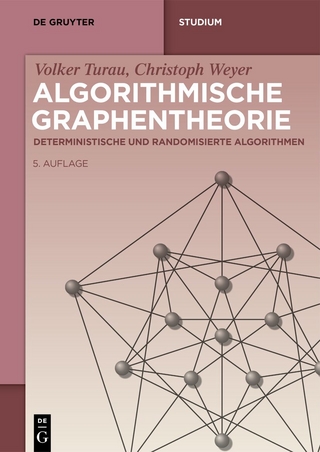
Toward Solving Complex Human Problems
CRC Press (Verlag)
978-0-367-68915-5 (ISBN)
This book serves three basic purposes: (1) a tutorial-type reference for complex systems engineering (CSE) concepts and associated terminology, (2) a recommendation of a proposed methodology showing how the evolving practice of CSE can lead to a more unified theory, and (3) a complex systems (CSs) initiative for organizations to invest some of their resources toward helping to make the world a better place.
A wide variety of technical practitioners—e.g., developers of new or improved systems (particularly systems engineers), program and project managers, associated staff/workers, funders and overseers, government executives, military officers, systems acquisition personnel, contract specialists, owners of large and small businesses, professional society members, and CS researchers—may be interested in further exploring these topics.
Readers will learn more about CS characteristics and behaviors and CSE principles and will therefore be able to focus on techniques that will better serve them in their everyday work environments in dealing with complexity. The fundamental observation is that many systems inherently involve a deeper complexity because stakeholders are engaged in the enterprise. This means that such CSs are more difficult to invent, create, or improve upon because no one can be in total control since people cannot be completely controlled. Therefore, one needs to concentrate on trying to influence progress, then wait a suitable amount of time to see what happens, iterating as necessary. With just three chapters in this book, it seems to make sense to provide a tutorial introduction that readers can peruse only as necessary, considering their background and understanding, then a chapter laying out the suggested artifacts and methodology, followed by a chapter emphasizing worthwhile areas of application.
Brian E. White earned an MS and a PhD in computer science at the University of Wisconsin, and SM and SB degrees in electrical engineering at the Massachusetts Institute of Technology (MIT). He served in the U.S. Air Force and for 8 years was at the MIT Lincoln Laboratory. For five years Dr. White was a principal engineering manager at Signatron, Inc. In his 28 years at The MITRE Corporation, he held a variety of senior professional staff and project/resource management positions. He was Director of MITRE’s Systems Engineering Process Office from 2003 to 2009. Dr. White retired from MITRE in July 2010 and has since offered a consulting service, CAU- SES ("Complexity Are Us"—Systems Engineering Strategies). He has taught technical courses as an Adjunct Professor at several U.S. universities, and he is currently tutoring in basic mathematics, calculus, electrical engineering, and complex systems. He has edited and authored several books and book chapters, mostly in his Complex and Enterprise Systems Engineering Series with Taylor & Francis and CRC Press. He has presented a dozen tutorials in complex systems and published over a hundred conference papers and journal articles in complex systems, systems engineering, digital communications, etc., over his 55+-year career.
1. Introduction — A Tutorial of Sorts 2. Evolution of Practice — Theory of Complex Adaptive Systems Engineering 3. Leading Change Management to Address Complex World Issues
| Erscheinungsdatum | 22.12.2022 |
|---|---|
| Reihe/Serie | Complex and Enterprise Systems Engineering |
| Zusatzinfo | 6 Tables, black and white; 10 Illustrations, black and white |
| Verlagsort | London |
| Sprache | englisch |
| Maße | 138 x 216 mm |
| Gewicht | 195 g |
| Themenwelt | Mathematik / Informatik ► Informatik ► Software Entwicklung |
| Mathematik / Informatik ► Informatik ► Theorie / Studium | |
| Technik ► Umwelttechnik / Biotechnologie | |
| ISBN-10 | 0-367-68915-4 / 0367689154 |
| ISBN-13 | 978-0-367-68915-5 / 9780367689155 |
| Zustand | Neuware |
| Informationen gemäß Produktsicherheitsverordnung (GPSR) | |
| Haben Sie eine Frage zum Produkt? |
aus dem Bereich


